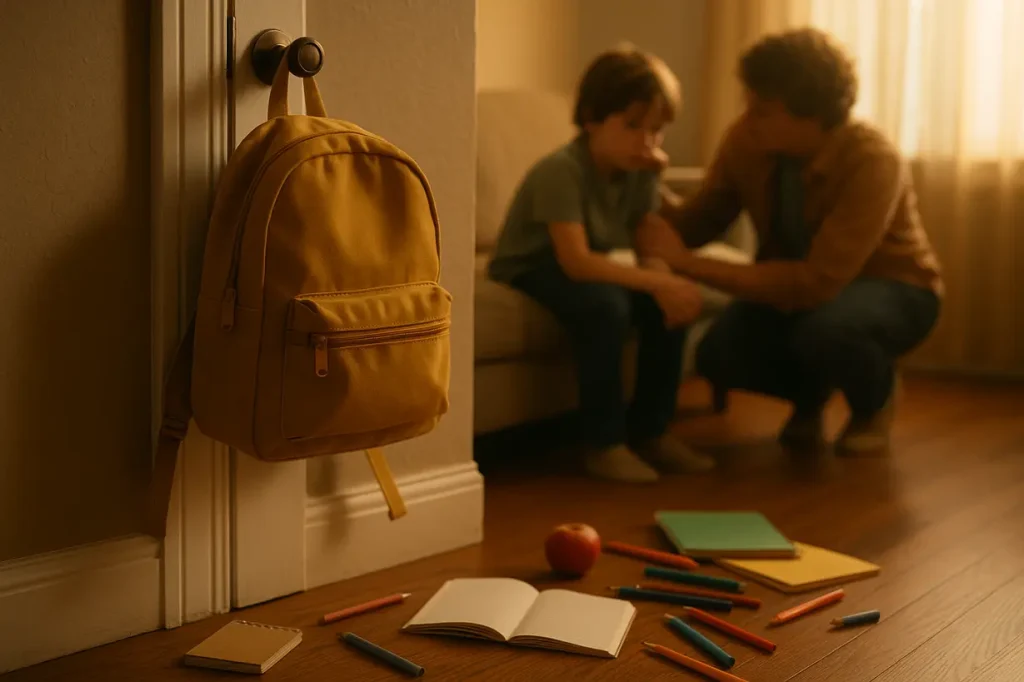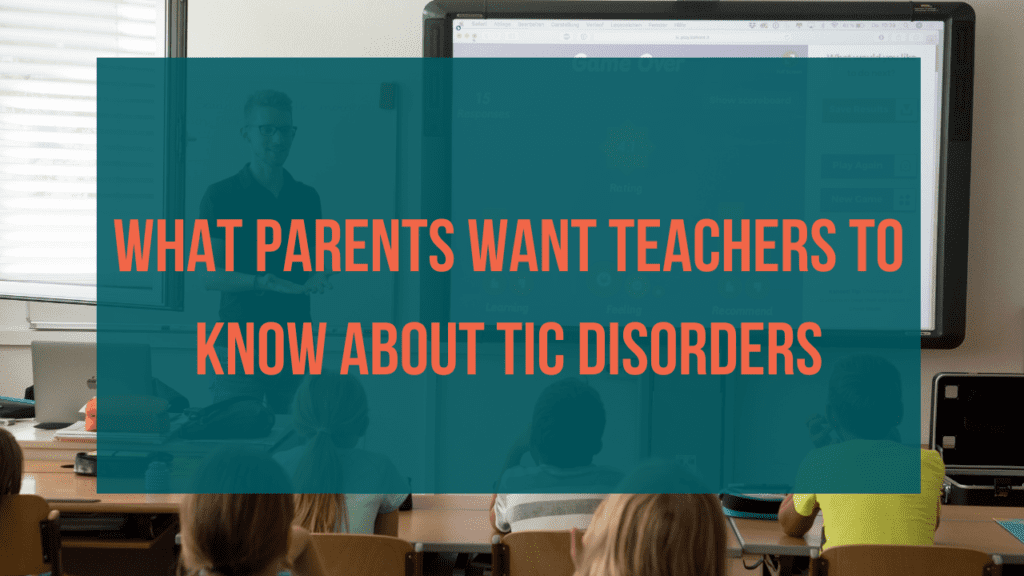The Back-to-School Struggle for Children with Tics
You have tried everything to stop your child’s tics—magnesium and B6 didn’t seem to help. Now it’s time to go back to school and you’re worried: what will other kids think? Will the teacher understand? You just want the tics to go away.
Key Takeaways
-
Tics are neurological, not behavioral: Kids aren’t acting out—recognizing tics as symptoms of a neurological disorder changes everything about how we respond.
-
Empowered teachers change lives: A classroom designed with understanding and flexibility can turn anxiety into achievement.
-
Holistic strategies ease symptoms: Nutrition, physical activity, and daily mindfulness routines reduce stress that often worsens tics.
-
Parent-teacher teamwork wins: Collaboration builds consistent support systems that create real, lasting impact in both home and school environments.
Table of Contents
Understanding Tic Disorders as Neurological Conditions
Tic disorders, including Tourette syndrome, are neurological disorders characterized by involuntary, repetitive body movements or vocalizations. These motor tics and vocal tics can be disruptive, exhausting, and misunderstood by those unfamiliar with their nature.
What Are Motor and Vocal Tics?
Motor tics include jerky movements of the head, face, arms, or legs. Vocal tics often manifest as throat clearing, sniffing, or other involuntary sounds. Both types may fluctuate in severity, intensity, and frequency.
Why Tics Are Not Behavioral Issues
Tics are not under the child’s control and are not signs of poor behavior. Tic disorders often coexist with executive function challenges, making everyday tasks like organization, focus, and emotional regulation more difficult. They may intensify under stress, anxiety, or fatigue, which is why stress and tics in children often go hand-in-hand.
The Role of Teachers: Building Inclusive Education Strategies
Teachers and parents are on the front lines of supporting children with tic disorders. Effective teacher support for tic disorders means more than patience—it means understanding, adapting, and leading by example in promoting inclusivity.

How Teachers Can Help in the Classroom
-
Build a Tic-Friendly Environment: Allow discreet fidget tools, movement breaks, and flexible seating.
-
Educate the Class: With parental consent, educate peers about tic disorders to reduce bullying and promote empathy.
-
Minimize Triggers: Identify and reduce stressors that could exacerbate tics.
-
Collaborate with Parents: Regular communication to adjust strategies and reinforce what works at home.
Holistic Health for Kids with Tic Disorders
From my experience as a Children’s Holistic Health expert and mother, managing tic disorders requires a 360-degree approach. Beyond clinical treatments, holistic interventions such as proper nutrition, adequate sleep, and consistent routines can make a significant difference.
Integrating Stress-Reduction Techniques
Stress is a major trigger for tics. Encourage:
-
Breathing exercises (like alternate nostril breathing)
-
Yoga and meditation as part of daily routines
-
Daily physical activity including PE and recess
These practices don’t just benefit children with tics—they help the entire classroom.
Advocating for Your Child’s Needs
Parents must be proactive in educating teachers and school staff. Share written plans, offer educational materials, and request specific accommodations through IEPs or 504 Plans where appropriate.
Final Thoughts: Building a Supportive School Culture
Teacher support for tic disorders is essential to fostering inclusive education strategies. When educators understand tic disorders as neurological, rather than behavioral, they become allies in a child’s academic and social success. Together with informed parents and holistic practices, we can ensure every child feels accepted, supported, and empowered.
Many parents and teachers find themselves in situations where a child is experiencing an “episode,” and it is difficult for them to understand what the child is going through. It can be challenging to know how to help a child when they are experiencing something you’ve never experienced or don’t fully understand. That’s why we work so hard at educating those who spend time with our kids daily. We all want the best for them! If you are looking for natural ways to stop tics, start here with the tic disorders cheat sheet.

